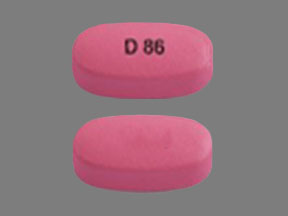
Depakote Coupons & Savings Card – Discount Prices from $13.18
Brand for: Divalproex
My prescription
Edit
500MG, Divalproex (60 Tablet Delayed Releases)
Select pharmacy

CVS
$23.76
COUPON PRICE
Walmart
$13.18
COUPON PRICE
Walgreens
$17.76
COUPON PRICE
Albertsons
$24.44
COUPON PRICEDepakote savings card
Show this card to your pharmacist
Walmart
$13.18
BIN
ID
PCN
GRP
019876
LH53780CD8
CHIPPO
LHX
Powered by
Related anti-epileptics prescriptions
More prescriptions for migraine
Related anti-epileptics prescriptions
More prescriptions for migraine
Price history for Depakote (brand) & Divalproex (generic)
60 Tablet Delayed Releases, 500MG
Average retail price for Depakote
Average retail price for Divalproex
Average SaveHealth price for Divalproex
Our price history data is based on aggregated prescription data collected from participating pharmacies in America. Our prescription data updates daily to reflect the latest price changes. If you notice a missing data point, it means there wasn't sufficient data available to generate a monetary value for that date.
Over the last 12 months, the average discount price of Depakote is $25.60 using the SaveHealth savings card. That's an average savings of 79.55% on Depakote with our discount card.
*Retail prices are based on pharmacy claims data, and may not be accurate when we don't have enough claims.
Depakote (Divalproex) dosage forms
Dosage Quantity Price from Per unit 125MG 1 Tablet Delayed Release $2.57 $2.57 125MG 30 Tablet Delayed Releases $4.58 $0.15 125MG 60 Tablet Delayed Releases $6.66 $0.11 125MG 100 Tablet Delayed Releases $15.94 $0.16 125MG 500 Tablet Delayed Releases $42.61 $0.09 250MG 1 Tablet Delayed Release $9.08 $9.08 250MG 30 Tablet Delayed Releases $11.52 $0.38 250MG 32 Tablet Delayed Releases $11.68 $0.36 250MG 60 Tablet Delayed Releases $14.03 $0.23 250MG 90 Tablet Delayed Releases $23.20 $0.26
| Dosage | Quantity | Price from | Per unit |
|---|---|---|---|
| 125MG | 1 Tablet Delayed Release | $2.57 | $2.57 |
| 125MG | 30 Tablet Delayed Releases | $4.58 | $0.15 |
| 125MG | 60 Tablet Delayed Releases | $6.66 | $0.11 |
| 125MG | 100 Tablet Delayed Releases | $15.94 | $0.16 |
| 125MG | 500 Tablet Delayed Releases | $42.61 | $0.09 |
| 250MG | 1 Tablet Delayed Release | $9.08 | $9.08 |
| 250MG | 30 Tablet Delayed Releases | $11.52 | $0.38 |
| 250MG | 32 Tablet Delayed Releases | $11.68 | $0.36 |
| 250MG | 60 Tablet Delayed Releases | $14.03 | $0.23 |
| 250MG | 90 Tablet Delayed Releases | $23.20 | $0.26 |
| 250MG | 100 Tablet Delayed Releases | $24.11 | $0.24 |
| 250MG | 120 Tablet Delayed Releases | $25.93 | $0.22 |
| 250MG | 500 Tablet Delayed Releases | $55.50 | $0.11 |
| 500MG | 60 Tablet Delayed Releases | $13.18 | $0.22 |
| 500MG | 1 Tablet Delayed Release | $2.68 | $2.68 |
| 500MG | 30 Tablet Delayed Releases | $7.84 | $0.26 |
| 500MG | 33 Tablet Delayed Releases | $8.38 | $0.25 |
| 500MG | 90 Tablet Delayed Releases | $25.02 | $0.28 |
| 500MG | 100 Tablet Delayed Releases | $26.81 | $0.27 |
| 500MG | 120 Tablet Delayed Releases | $30.37 | $0.25 |
| 500MG | 180 Tablet Delayed Releases | $42.68 | $0.24 |
| 500MG | 500 Tablet Delayed Releases | $71.80 | $0.14 |
What is Depakote usually prescribed for?
Depakote is usually prescribed for the treatment of seizure disorders, bipolar disorder, and to prevent migraine headaches.
Is Depakote a good mood stabilizer?
Depakote is commonly used as a mood stabilizer, particularly in the treatment of bipolar disorder. It can be effective in managing manic episodes and helping to stabilize mood swings. However, its effectiveness can vary from person to person, and it may have side effects. It is important for individuals to consult with their healthcare provider to determine if Depakote is the right choice for their specific condition.
What is the most common side effect of Depakote?
The most common side effect of Depakote (valproic acid) is gastrointestinal upset, which can include symptoms such as nausea, vomiting, and indigestion.
Is Depakote an anti-anxiety medication?
Depakote is not primarily used as an anti-anxiety medication. It is mainly prescribed to treat seizure disorders, bipolar disorder, and to prevent migraine headaches. While it may have some effects on mood stabilization, it is not typically used to treat anxiety disorders.
What foods should you avoid while taking Depakote?
While taking Depakote, it is generally advised to avoid alcohol, as it can increase the risk of liver damage and enhance the sedative effects of the medication. Additionally, it is important to maintain a balanced diet and avoid excessive consumption of high-fat foods, as they can affect the absorption of the medication. Always consult with a healthcare provider for personalized dietary recommendations.
